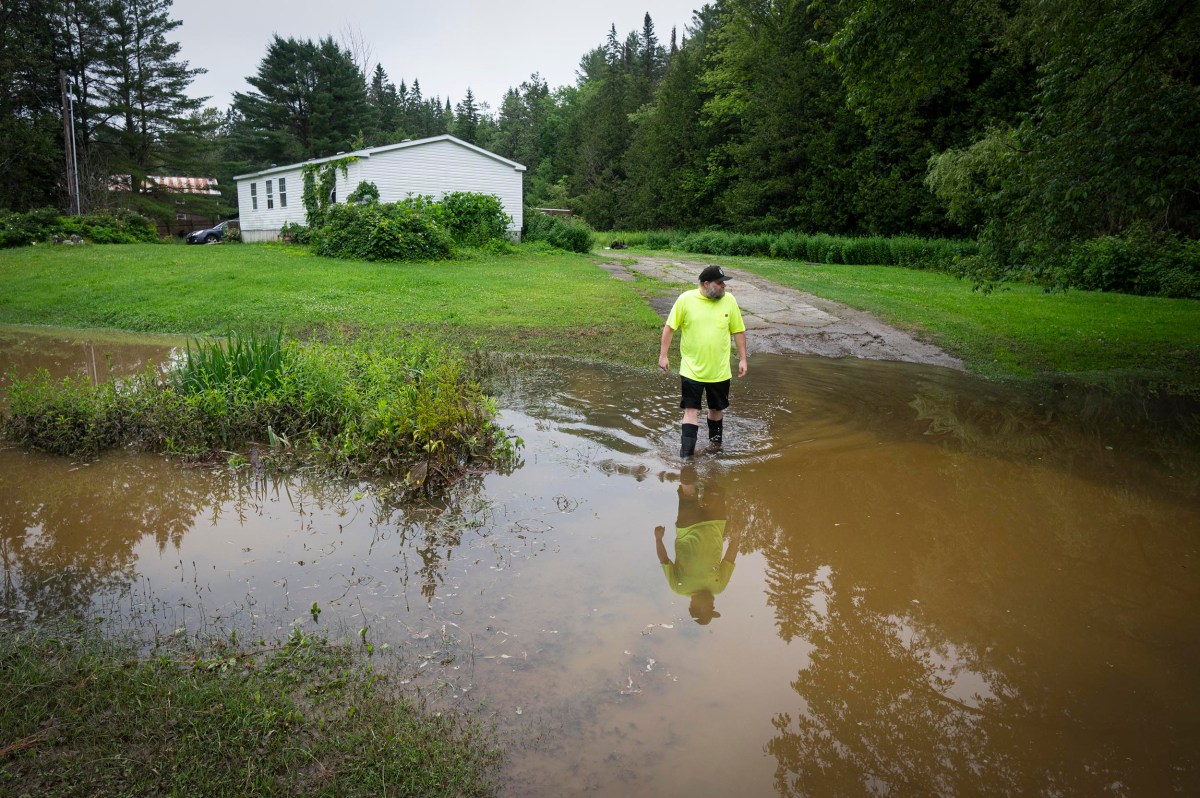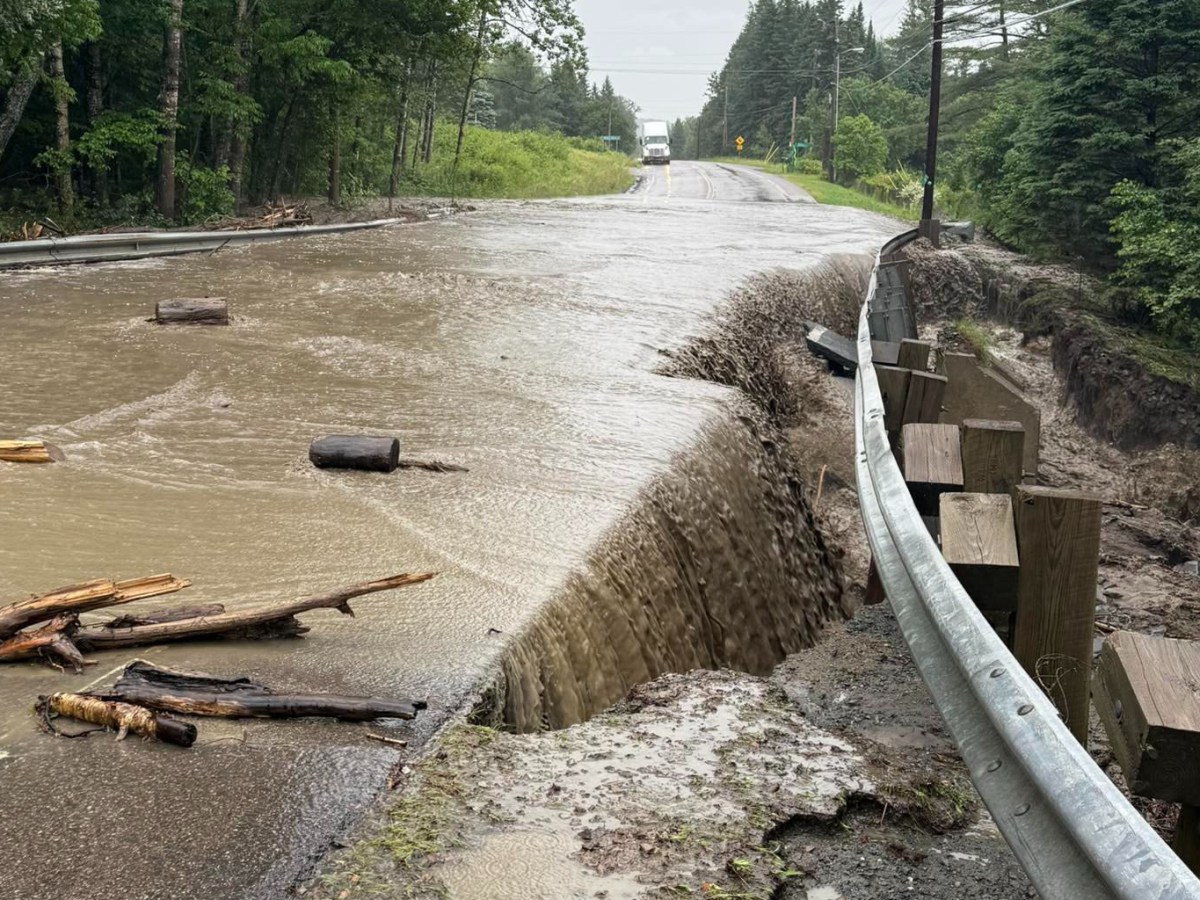
Vermont is seeking a federal disaster declaration that would reimburse affected municipalities for their expenses from last month’s flooding in Caledonia and Essex counties.
Some communities in the Northeast Kingdom counties experienced flooding on July 10 for the third year in a row. Federal assessors tallied more than $1.8 million in damages to property owned by public entities, according to a press release from Gov. Phil Scott’s office, including more than $1 million in Sutton alone.
“The damage from last month’s storm impacted small towns with limited financial resources,” Scott said in the release. “Submitting this request is an important step in the process to bring FEMA funds to Vermont to help towns rebuild and recover.”
The federal government approved major disaster declarations for Vermont’s catastrophic summer storms in 2023 and 2024. Vermont is among the states with the most such declarations caused by extreme weather. In the two previous years’ requests, the state asked for reimbursement assistance for both public entities and for individuals.
If approved, the 2025 declaration will allow eligible towns to receive 75% reimbursement for costs like road repairs and debris removal, according to the state. The Federal Emergency Management Agency will review the request, which must be approved by President Donald Trump.



